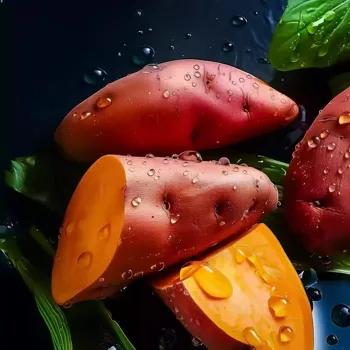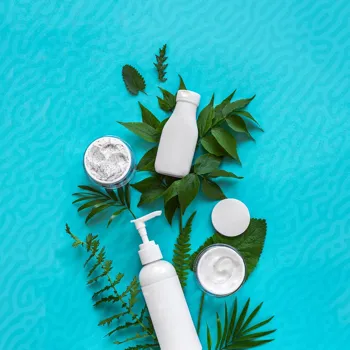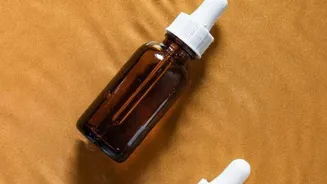Unlock the Secret to Radiant Skin: The Power of Hydration. Dive in to learn how to keep your skin glowing and supple
In the bustling landscape of Indian skincare, where ancient wisdom meets modern techniques,
one mantra remains timeless: hydration is key.
Whether you're battling the scorching summer heat or the dry winter air, keeping your skin adequately moisturized is fundamental for a healthy, radiant complexion.
It's not just about aesthetics; well-hydrated skin functions better, protects against environmental aggressors, and simply feels more comfortable. So, let's dive into the world of hydration and discover how to keep your skin supple and glowing, no matter the season.
Our skin's hydration needs depend on type and external factors
Our skin, the largest organ of our body, is constantly exposed to the elements. This exposure can lead to moisture loss, resulting in dryness, flakiness, and even premature aging. Different skin types have varying hydration needs.
Oily skin might seem like it doesn't need extra moisture, but even oily skin can be dehydrated, leading to increased sebum production as the skin tries to compensate. Dry skin, on the other hand, craves moisture and requires a richer, more emollient approach.
Combination skin presents a unique challenge, needing targeted hydration for different areas of the face. Factors like climate, lifestyle, and age also play a significant role in determining your skin's hydration requirements.
Identifying your skin type and understanding these influencing factors is the first step towards achieving optimal hydration.
Hydrate skin inside out with water & hydrating foods for glow
The foundation of healthy, moisturized skin lies within. Drinking an adequate amount of water daily is crucial for overall health, and it directly impacts the skin's hydration levels. Water helps to flush out toxins, improve circulation, and maintain the skin's elasticity.

Aim for at least 8 glasses of water a day, and even more if you're physically active or exposed to hot weather. Including hydrating foods in your diet, such as fruits like watermelon and cucumber, and vegetables like spinach, can further boost your hydration levels.
Remember, what you put inside your body reflects on the outside, and hydration is no exception. Make water your best friend for a naturally glowing complexion.
Topical moisturizers and serums enhance skin hydration and protection
While internal hydration is essential, topical application of moisturizers and serums plays a vital role in locking in moisture and protecting the skin's barrier. Moisturizers create a protective layer on the skin, preventing water loss and keeping it supple.

Serums, packed with concentrated ingredients like hyaluronic acid and glycerin, penetrate deeper into the skin to deliver intense hydration. Choosing the right moisturizer and serum depends on your skin type and concerns. For oily skin, opt for lightweight, non-comedogenic formulations.
Dry skin benefits from richer, cream-based moisturizers. And for those seeking an extra boost of hydration, serums can be a game-changer. Incorporate these topical heroes into your daily skincare routine for lasting hydration and a healthy-looking complexion.
Maintain healthy skin with a consistent hydration-focused routine
Creating a consistent skincare routine focused on hydration is key to maintaining a healthy, moisturized complexion. Start with a gentle cleanser that doesn't strip the skin of its natural oils. Follow with a hydrating toner to balance the skin's pH levels.
Next, apply a hydrating serum, focusing on areas that tend to be drier. Finally, seal in the moisture with a suitable moisturizer. In the morning, don't forget to apply sunscreen to protect your skin from sun damage.
At night, consider adding a hydrating mask to your routine once or twice a week for an extra boost of moisture. Consistency is key, so stick to your routine and watch your skin transform over time.
Humidity impacts skin hydration and breakouts
Humidity plays a significant role in skin hydration. In humid climates, the air is already saturated with moisture, so the skin may not lose as much water to the environment. However, even in humid weather, it's important to stay hydrated, both internally and externally.
Humid air can also trap sweat and oil on the skin, which can lead to clogged pores and breakouts. To help prevent breakouts, it's important to cleanse your skin regularly and use light, non-comedogenic products.
Combat winter dehydration with rich moisturizers, humidifiers, and skin exfoliation
Winter presents unique hydration challenges. The cold air, combined with indoor heating, can quickly dry out the skin. To combat this, switch to a richer moisturizer during winter. You may also want to use a humidifier to add moisture back into the air.
Other tips for staying hydrated during winter include taking shorter, lukewarm showers and avoiding harsh soaps. Also, remember to exfoliate your skin to remove dead skin cells that can prevent moisture from penetrating.
Lifestyle choices affect skin hydration; consult doctor for medication
Beyond the daily routine, lifestyle choices significantly impact skin hydration. Smoking, alcohol consumption, and a poor diet can all contribute to dehydrated skin. Regular exercise is beneficial for overall health, but it's also important to replenish fluids lost through sweat.
Additionally, certain medications can have a drying effect on the skin. It's important to consult with a doctor if you suspect that your medication is causing dehydration.
By making healthy lifestyle choices, you can support your skin's natural hydration levels and maintain a healthy, radiant complexion.
Maintain skin health with consistent hydration
Keep your skin health at its best by consistently keeping it moisturized and hydrated!
AI Generated Content. Glance/InMobi shall have no liability for the content












